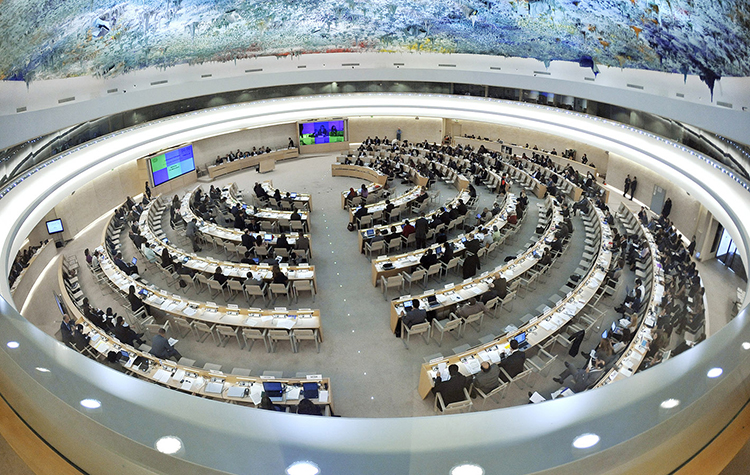37th Regular Session of the UN Human Rights Council
Item 6: Universal Periodic Review of Pakistan
Oral Statement Delivered by Rosanna Ocampo on behalf of
Asian Forum for Human Rights and Development (FORUM-ASIA)
Monday, 19 March 2018
While we appreciate that a recommendation to intensify efforts at safeguarding freedom of expression[1] was accepted, we regret that a recommendation to protect online freedom was merely noted.[2]
Section 37 of the Prevention of Electronic Crimes Act of 2016 empowers telecommunication regulators to arbitrarily filter or censor ‘objectionable content’, which has restricted online expression, including for religious, sexual, or ethnic minorities. Laws have also been misused to target alleged blasphemers and to block any criticism of the state.
The law provides sweeping powers for the Pakistan Telecommunication Authority without sufficient independent judicial oversight; and the sharing of information with foreign governments.
We appreciate that the government has accepted recommendations to investigate attacks on journalists and human rights defenders.[3] However, crucial recommendations on: bringing justice to these cases; and on introducing legislation and implementing concrete measures to protect journalists and human rights defenders have merely been noted.[4]
In May 2017, the Federal Investigation Agency made public names of social media activists accused of criticising the military – making them vulnerable to threats from state and non-state actors.
The registration procedures of the new NGO policy are aimed at restricting space for human rights defenders. This has also lead to increased ‘friendly visits’ by intelligence officials at various NGO meetings and disruption of their activities. Recently, 27 INGOs were asked to shut down their operations.
We call on the government of Pakistan to accept pending recommendations on protecting freedom of expression and human rights defenders, and to develop a concrete and time-bound implementation plan in consultation with civil society. We look forward to further engagement with the government and the international community in following up on UPR recommendations. Thank you.
[1] 152.170
[2] 152.172
[3] 152.173-152.176
[4] 152.177-152.181
***
For a PDF version of this statement, click here.



